English is a confusing language to learn. Thorough, thought, thou, and through? Silent Bs and Ps? Everything about the word fuchsia?
Things get even more complicated when one starts dealing with colloquial quips, antiquated expressions, and—trickiest of all—idioms. Years ago, as an English-speaking Canadian international student in China, I found myself trying to explain the meaning of the skin of one's teeth to my Spanish-speaking Cuban classmate, using Mandarin Chinese—our only common language. You can probably imagine how well that went.
If you don't have at least a next-to-fluent knowledge of the language—as well as some idea of the historical or philosophical context of these cute little combinations of words—idioms can seem utterly nonsensical.
Why is our fight last week over whether to have pad thai or hot wings for dinner water under the bridge? Why do people laugh at cut the cheese but nod appreciatively at cut the mustard? And to bite the bullet or chew the fat just seem like terrible ideas.
Even native English speakers may not know from where these phrases originate or why we use them as we do.
So, how many of the following idioms do you recognize
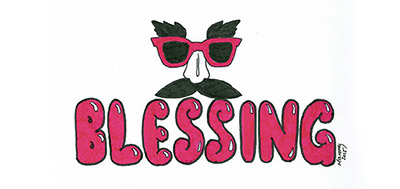
Answer: Blessing in disguise—something that seems like a misfortune at first but turns out to be a good thing
Example: Stanley was angry that his friends didn't save him any pizza, but it turned out to be a blessing in disguise when they all got explosively sick and were known from then on as the Puke Brigade.
Did You Know? Televangelist Pat Robertson called the devastating 2010 earthquake in Haiti a blessing in disguise, claiming that the disaster was divine punishment for a pact made with the devil in 1804.
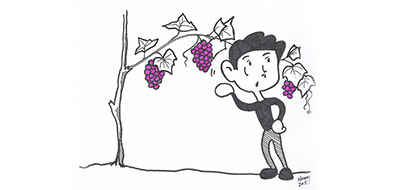
Answer: Heard it through the grapevine—news or information obtained through gossip
Example: "I heard it through the grapevine that a goat had something to do with Jim Bob and Daisy's breakup."
Did You Know? This phrase originates from when important information was passed via telegraphs. The strung telegraph wires resembled grapevines.
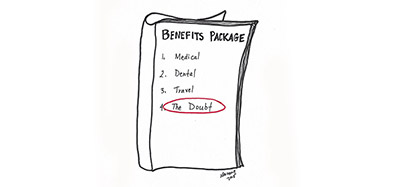
Answer: The benefit of the doubt—choosing to believe something good about someone when the situation could really go either way
Example: Virginia thought it was a bad sign that Omar had been late for their fourth date in a row, but he was just so darn attractive she decided to give him the benefit of the doubt.
Did You Know? President Obama asked for the benefit of the doubt from Germany when the United States was faced with accusations of unethical spying and surveillance. That's a pretty big favor, Mr. President!
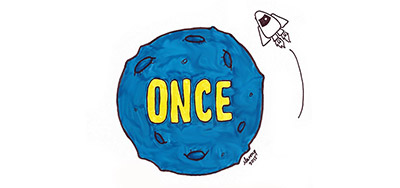
Answer: Once in a blue moon—very rarely/almost never
Example: How often does a single woman shave her legs? Once in a blue moon.
Did You Know? An actual blue moon is the second full moon to occur in a calendar month. The phenomenon, far from being an "almost never" experience, happens every 32 months, but chances are it won't be blue—or made of cheese. Now, why isn't there an expression about a blue-cheese moon?
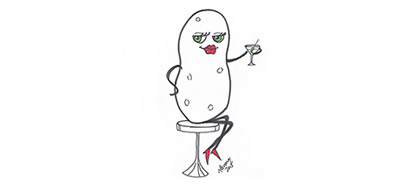
Answer: Hot potato—something generally acknowledged to be so disagreeable, sensitive, or controversial that people want nothing to do with it
Example: The town in the movie Footloose was left so devastated after the accidental death of a group of hip-swaying, cassette tape-loving, tail feather-shaking party boys that rock 'n' roll music became a hot potato.
Did You Know? In 2009, "The Song of the Grass-Mud Horse," a cutesy YouTube music video about llamas, became a political hot potato for using wordplay to mask foul language in protest of mainland China's censorship laws.
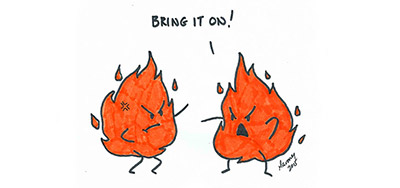
Answer: Fight fire with fire—to fight back against an attacker, using the same methods used in the initial attack, often to the detriment of both parties
Example: Nothing proves you can't fight fire with fire better than an Internet comments page.
Did You Know? This idiom was first recorded in Shakespeare's Coriolanus.
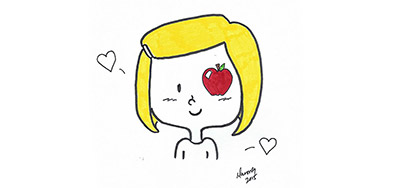
Answer: Apple of my eye—the object of my affection
Example: Rosaline was the apple of Romeo's eye forever and ever and ever—until, like, Romeo saw Juliet. Related idiom: chopped liver.
Did You Know? This idiom originates from a Hebrew expression that actually means "The Little Man of the Eye" (meaning the reflection one sees of oneself in another person's pupils). In one biblical passage, however, the phrase uses the word bava, which can be translated (among other interpretations) as "apple.
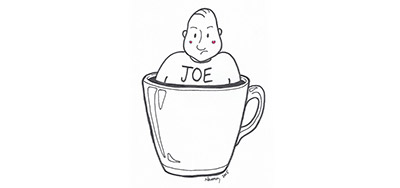
Answer: Cup of joe—a cup of coffee
Example: "I can't even think about looking at a spreadsheet until I've had at least one cup of joe."
Did You Know? The best guess so far as to the origin of this phrase is that joe is just a shortened version of jamoke, the early-1900s slang term for coffee. But this theory's weaker than a single-shot café Americano if you ask me.

Answer: Chip on your shoulder—to hold onto a grudge or grievance
Example: He still has a chip on his shoulder about not being accepted to Harvard despite Daddy's generous and timely donation.
Did You Know? This idiom actually comes from a nineteenth-century American practice of literally putting a chip of wood on one's shoulder as a challenge for someone to knock it off and initiate a fistfight. Today, the easiest way to start a fight is to declare yourself a feminist on the Internet.
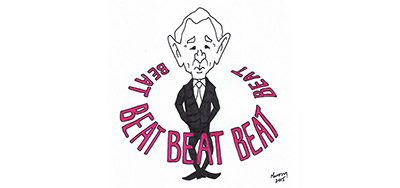
Answer: Beat around the bush—to speak evasively in order to avoid getting to the point or answering a question
Example: "Stop beating around the bush and tell me if you ate my damn sandwich!"
Did You Know? It is universally acknowledged that it is never acceptable to beat around the bush when answering the question, "Does this make me look fat?" The answer must always and immediately be "No."




